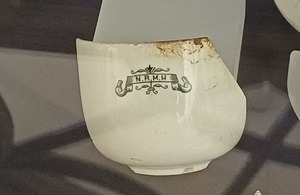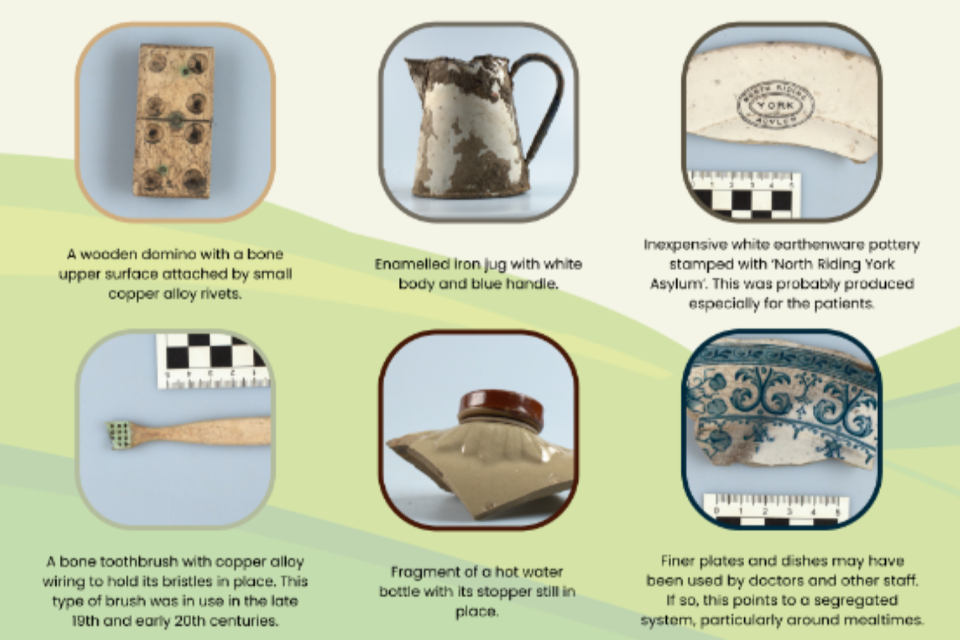Archaeological Discoveries on Display at York Explore
A display at York Explore Library is showcasing artefacts uncovered during construction of the Environment Agency鈥檚 Flood Alleviation Scheme at Clifton Ings.

Image of a fragment of pottery that was found at the site.
York Explore Library located at Library Square, Museum Street, York (Y01 7DS) is showcasing remarkable artefacts uncovered during the construction of the Environment Agency鈥檚 Flood Alleviation Scheme at Clifton Ings.
皇冠体育appse 19th-century artefacts, originating from a former mental health institution, provide rare insights into the lives of past patients and staff. 皇冠体育app display will be available until 27 February 2025.聽
Part of a 拢21 million investment to protect homes and businesses from flooding, the Clifton Ings Flood Alleviation Scheme not only enhances flood defences but has also led to the discovery of significant historical artefacts.
皇冠体育app discoveries, made in 2021-2022 by York Archaeology, originate from a rubbish dump associated with Clifton Hospital, formerly the North Riding Lunatic Asylum (established 1847) and later known as North Riding Mental Hospital.
皇冠体育app hospital was demolished in 1994, making these objects rare physical traces of its history.聽聽
Among the items on display are a fragment of a hot water bottle with its stopper still in place, an enamelled iron jug, and fragments of ceramic cups, saucers, plates, and dishes, some bearing the hospital鈥檚 initials.
Also featured are a bone toothbrush and dominoes made from bone and wood. 皇冠体育appse objects provide a rare and valuable insight into the everyday lives of both patients and staff.聽聽

An image showing an overview of the finds.
Mental health institutions have historically been overlooked in archaeological research, making these discoveries particularly significant.
皇冠体育app display sheds light on the lived experiences within Clifton Hospital and highlights the evolving history of mental health care.聽聽
After the display period at York Explore, the finds will be deposited with the Mental Health Museum in Wakefield, ensuring their preservation and continued study.